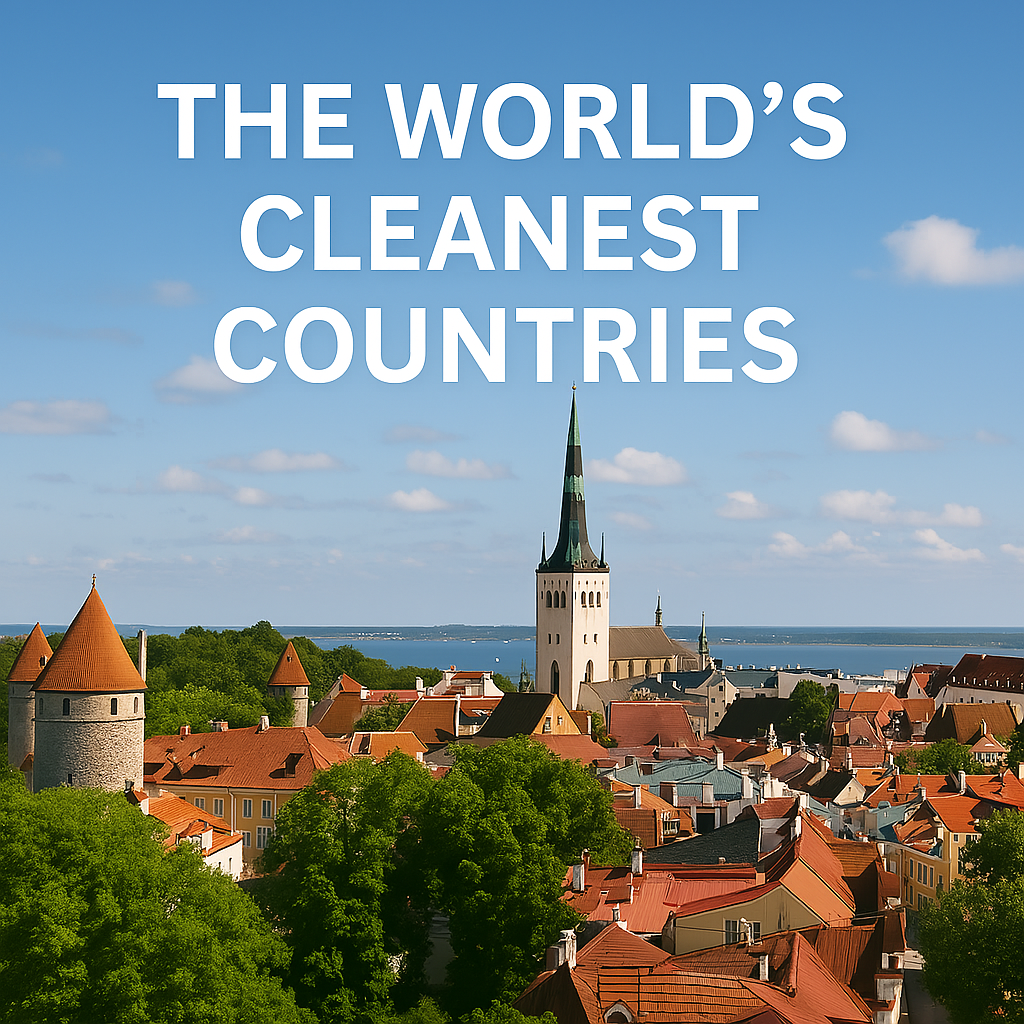
top five clean countries in world
In an era where environmental consciousness is more crucial than ever, certain nations stand out for their dedication to cleanliness and sustainability. The Environmental Performance Index (EPI) ranks countries based on factors such as air and water quality, waste management, and green energy initiatives. According to the latest 2025 rankings, the top five cleanest countries in the world are:
1. Estonia
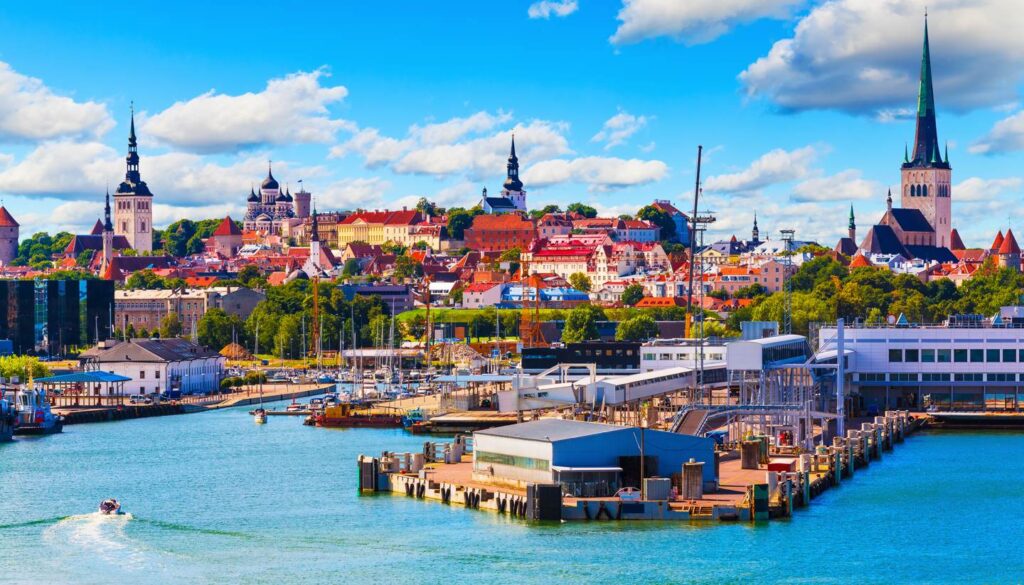
Leading the list, Estonia boasts pristine forests, clean lakes, and fresh air. Estonia has made remarkable strides in environmental sustainability. The country has implemented the Estonian Environmental Strategy 2030, which focuses on reducing pollution, managing waste, and preserving biodiversity. Despite being one of the most carbon-intensive economies in the EU, Estonia is actively working on improving its environmental policies.
Tallinn – The capital city is a stunning blend of medieval architecture and modern charm. The Tallinn Old Town, a UNESCO World Heritage site, is a must see.
Parnu – Known as Estonia’s summer capital, this coastal city boasts beautiful beaches and a lively promenade
2. Luxembourg

This small but wealthy European nation ranks second due to its excellent sanitation, clean drinking water, and modern waste management systems. Luxembourg’s commitment to sustainability ensures its streets remain spotless. The city of Luxembourg has implemented strict waste reduction policies, including curbside collection of organic waste and advanced recycling programs. The country has also introduced the Waste Act, which aims to reduce waste and increase recycling rates.
Luxembourg City – The heart of the country, featuring historic fortifications, charming streets, and breathtaking views.
Vianden Castle – A fairytale-like castle perched on a hill, offering incredible history and panoramic scenery
3. Germany
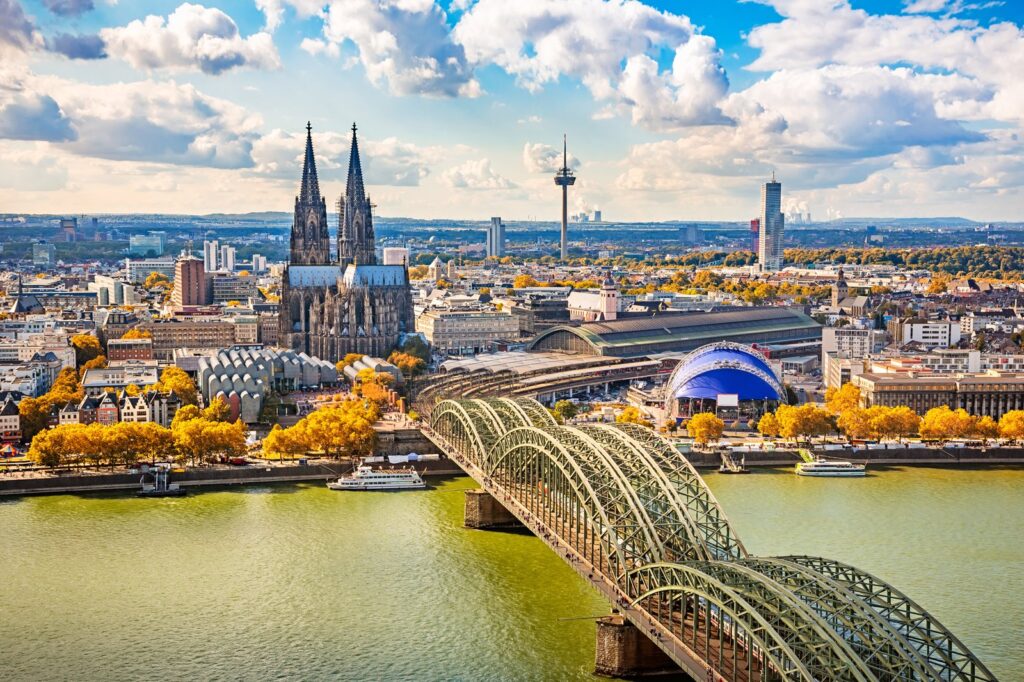
Germany’s strict environmental regulations and widespread use of green energy contribute to its high ranking. The country excels in air and water quality, recycling programs, and eco-friendly urban planning. Germany is a global leader in green energy and urban planning. The country has ambitious goals to achieve 80% renewable energy by 2030 and has invested heavily in solar and wind power. Cities like Freiburg are known for their sustainable urban planning, with eco-friendly housing and extensive public transportation networks.
Neuschwanstein Castle – A magical castle in Bavaria that inspired Disney’s Cinderella Castle.
Cologne Cathedral – A stunning Gothic masterpiece and one of Germany’s most iconic landmarks
4. Finland
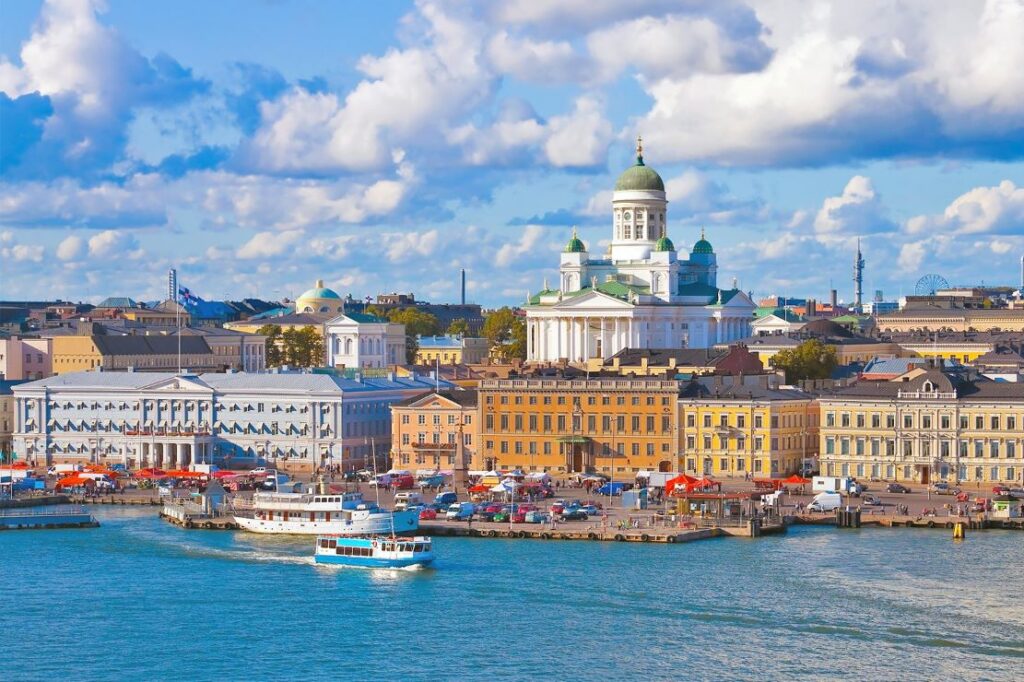
Known for its breathtaking landscapes, Finland prioritizes environmental conservation. Its citizens actively engage in sustainable practices, and the government enforces policies that promote clean living. The country has successfully cleaned up polluted lakes and rivers and has implemented the Climate Act, which aims for carbon neutrality by 2035. Finland also has an extensive network of protected areas to safeguard its natural beauty.
Suomenlinna Fortress – A UNESCO-listed sea fortress near Helsinki, rich in history and scenic beauty.
Rovaniemi – The official hometown of Santa Claus, offering Arctic adventures and Northern Lights views
5. United Kingdom
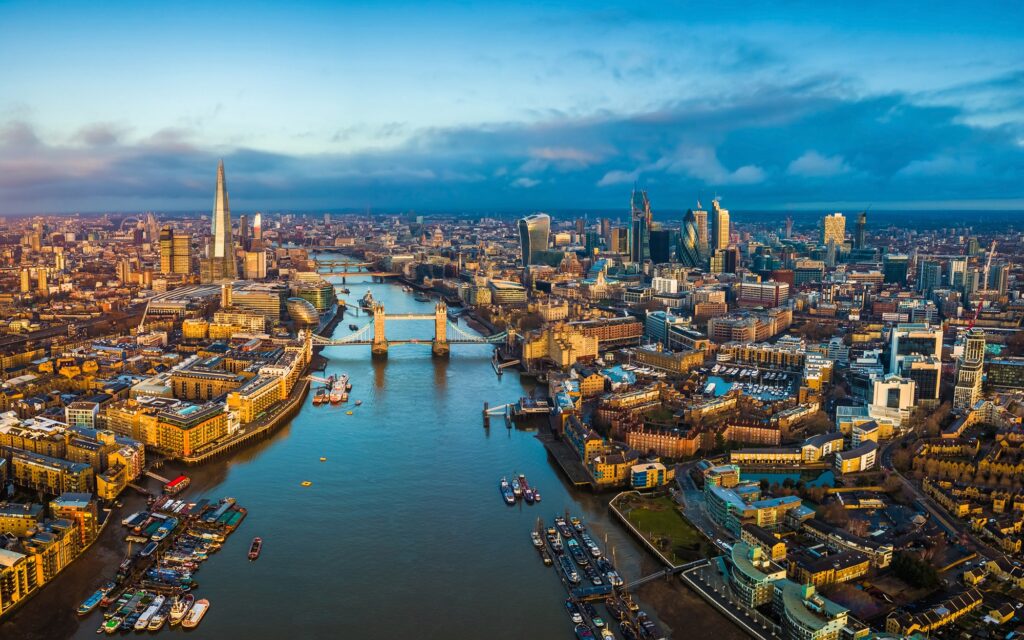
Rounding out the top five, the UK has made significant strides in reducing pollution and promoting renewable energy. Its environmental laws ensure cleaner air, water, and urban spaces.The UK has made significant progress in pollution reduction and renewable energy. The government has set ambitious targets to achieve clean power by 2030, focusing on wind and solar energy. The UK is also committed to reaching net zero emissions by 2050, with policies aimed at reducing carbon footprints across industries
Tower of London – A historic fortress with centuries of royal intrigue and the Crown Jewels.
Edinburgh Castle – A breathtaking castle in Scotland, offering stunning views and deep military heritage
These nations serve as global examples of how proactive environmental policies and responsible citizen behavior can lead to a cleaner, healthier planet. As climate concerns grow, their efforts highlight the importance of sustainability for future generations.



